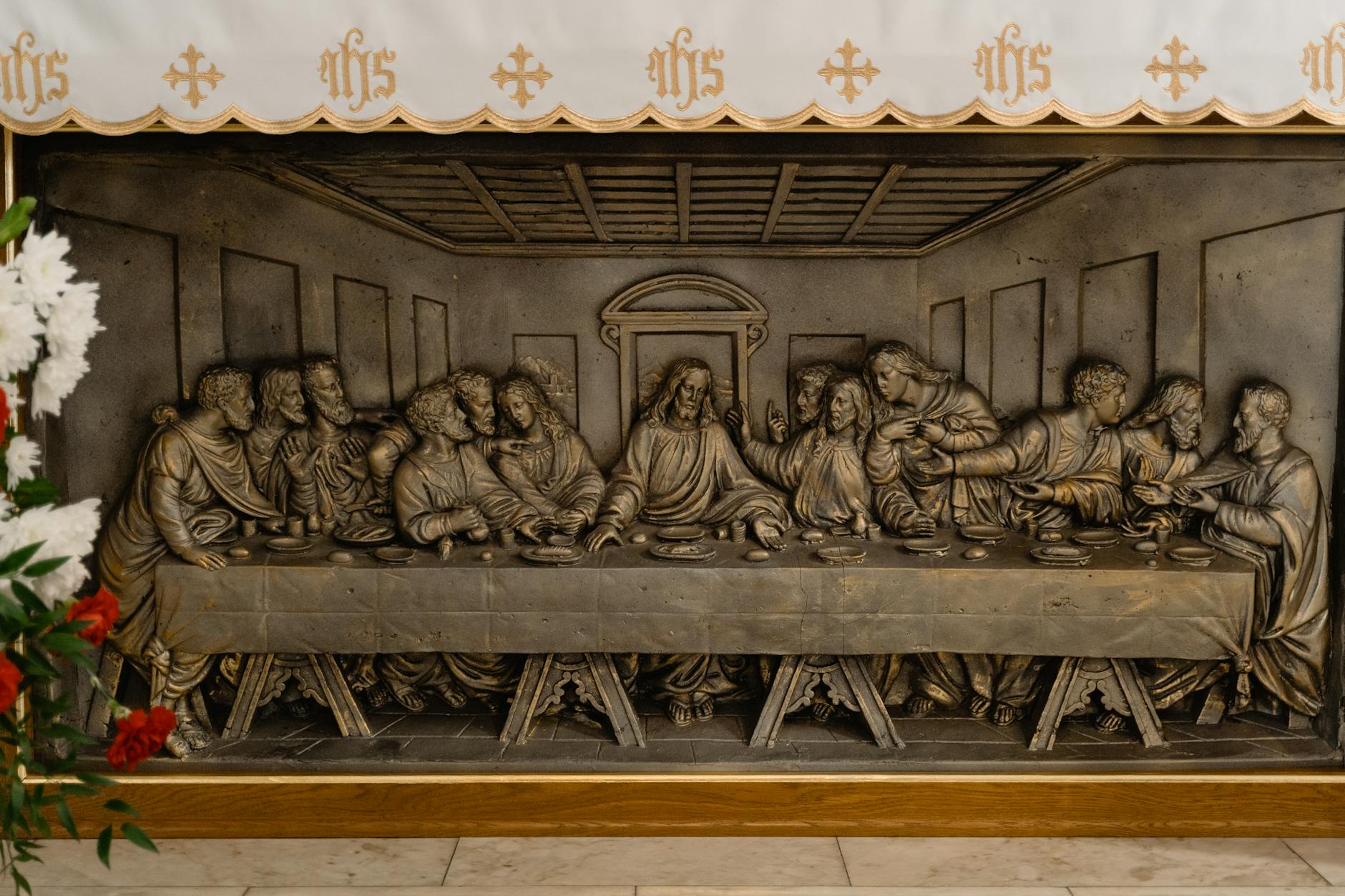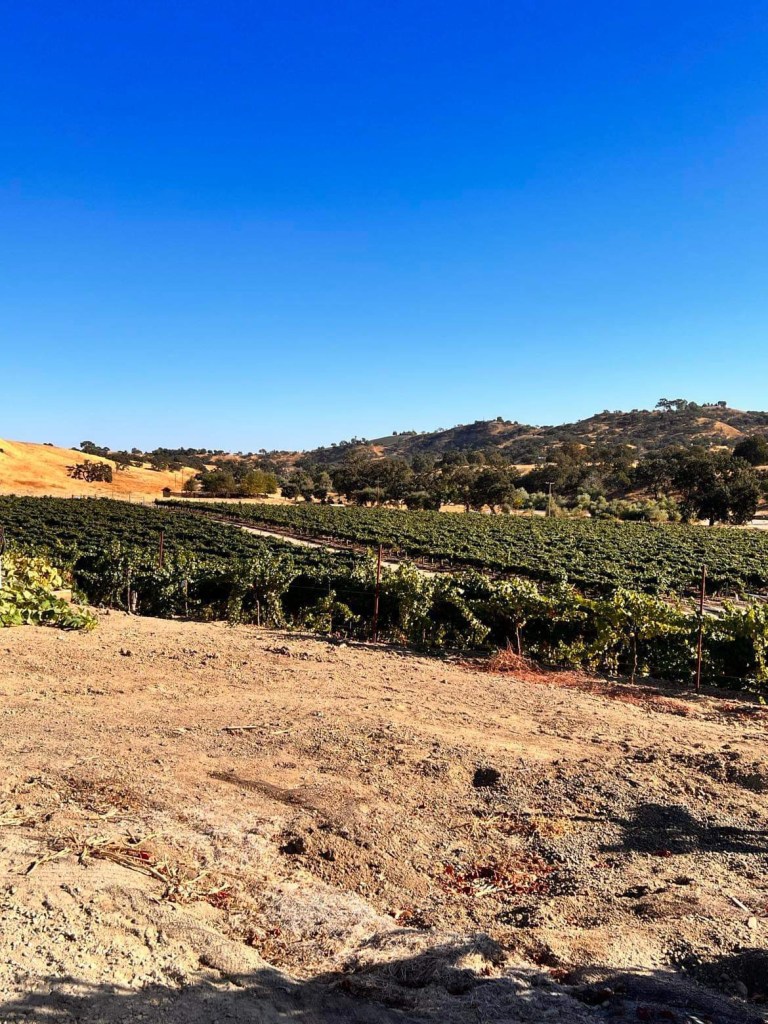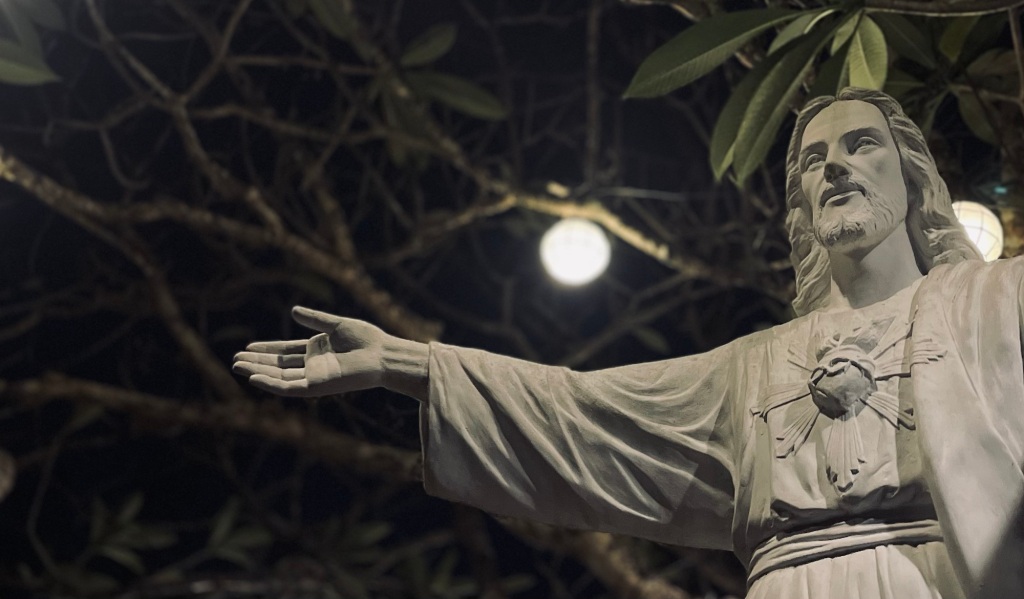Quiet Storm by Fr. Nicanor F. Lalog II, 10 May 2024

My most vivid image of mommy’s love for me is from June 1979 when I bid her goodbye in her sari-sari store on my way to the high school seminary. That was the last time I felt I was a kid, her child, when she hugged me tightly, then held my head and kissed me as she fixed by combed hair, telling me “magpapakabait ka doon, anak.”
She had always been against my entering the seminary, saying I was too young to know about the priesthood. She did all the scare tactics to me: “hindi ka mag-aasawa, isda at tuyo araw-araw ang ulam ninyo, hindi masarap pagkain doon…” She finally allowed me to enter the seminary on second year high school I believe after my dad had silently persuaded her.
It was funny because on my fourth year before graduation, I felt I was not ready yet for the major seminary that was eventually confirmed by the results of my entrance exam (psychological tests actually) to San Carlos Seminary that it was suggested I better leave the seminary.

Tama nga si mommy.
It was from then on when we had that kind of not so smooth mother-son relationship. I felt far from her as she would always say something to my plans and decisions. She was not really a contravida but more of an oppositionist. That is why when I felt my vocation anew later in 1988, I never told her about it until I was about to go back to the seminary. That time, there was no more hugging and kissing maybe because I was already an adult, a man bigger and stronger than her.
But what was most memorable for me now that she is gone was the scene every time I would go back the seminary and later to my assignments as a priest.
Whenever I would tell her “mommy, uuwi na po ako”, she would say while smiling, “e nasa bahay ka, paano ka pa uuwi?”
That happened so often that she sounded so corny but still, thank God, I never tired explaining to her, “uuwi sa seminaryo” later to Malolos then to Bagbaguin and now to Fatima. She never failed to banter with me with her dry humor and stroke during those moments of my leaving home. I think she was telling me in those every good bye of ours that my home would always be her, my family. That is why after her body was taken from her room last Tuesday morning, the scene that struck me most on her death was her empty room, vacant big bed.
As I left home pauwi sa Fatima, the morning sunshine were so lovely as it softly brightened mommy’s empty room as she is now “home” in heaven with daddy.
Overall, I feel so joyful and grateful in my mother’s demise. She left so peacefully in her sleep as I have prayed to God daily. The outpouring of love and sympathies and friends are beyond our expectations or imaginations. But, there is that fear, a dread in me about coming home, finding her room empty, telling me she is gone.

Mommy’s room is now empty but our hearts are so full of her love, of her memories, of her gift of self.
During the pandemic, I begged God not to take my mom yet. I told God I was not ready because she was primarily the reason I “go home”. As I reflect on the meaning of that image of her empty room, I realized that it is not about going home but coming home. We go home to the house and place but we come home to persons, to family and friends.
Pag-uwi in Tagalog which is literally coming home. Not going home. Because when we leave, we say uuwi also as we come home to our new home.
We Filipinos express both our kinship and Christian faith in our goodbyes.
Our professor in liturgy Msgr. Andy Valera used to tell us we never say aalis na ako or “I am leaving” because that means we are angry. It is very rude and should never be said when saying goodbye in any Filipino gathering. Instead, we say next to uuwi na ako either tutuloy na ako or mauna na ako. But, how can we make tuloy which is to enter when we are in fact leaving? And why say mauna na ako which means I’ll go ahead when nobody is going with you?

According to Msgr. Andy, our coming home indicates our theology of heaven: we all come home, uwi to heaven our true home that is why when we leave our gatherings we say tutuloy na ako because in the end, we enter heaven. Most of all, we say mauna na ako because nobody knows who is next to die.
What a beautiful lesson I just realized now after mommy had died; even if she’s gone and her empty is room, I will still come home to my sisters and brother, nieces and nephew, relatives and neighbors.
How lovely that despite the pain and emptiness death creates in us here on earth is also the grace of God to fill each others heart with His loving presence and joy as we await our final coming home to Him with our departed loved ones in heaven.
Jesus told his disciples: “Do not let your hearts be troubled. You have faith in God; have faith also in me. In my Father’s house there are many dwelling places. If there were not, would I have told you that I am going to prepare a place for you? And if I go and prepare a place for you, I will come back again and take you to myself, so that where I am you also may be.”
John 14:1-3
The best way to come home to heaven is to come home often to our family and friends not only to dine and celebrate but most of all, to praise and thank God in prayers, especially the Sunday Mass. God bless everyone!



























